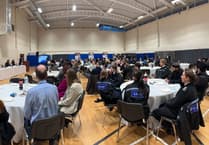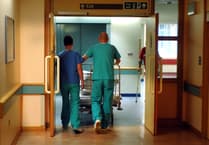Schools, hospitals and other key services in East Hampshire take around half an hour to reach on foot or by public transport, figures suggest - more than double the time it takes in London.
In its recently published Levelling Up white paper, the Government pledged to bring public transport connectivity across the country in line with London standards by 2030.
But campaigners calling for more funding to improve access to bus and rail services say recent cuts mean the Government is giving mixed messages over its commitment to levelling up.
Each year, the Department for Transport calculates journey times from neighbourhoods across England to eight local services by walking or via public transport.
DfT data shows in East Hampshire journey times to these services, which include large workplaces, secondary schools, hospitals, food shops and town centres, averaged 29 minutes in 2019 – the latest data available.
Meanwhile, the average journey time to reach the same key services in the capital – which boasts the fastest travel times nationally – was around 12 minutes.
The figures show it took East Hampshire residents one hour and 13 minutes to reach a hospital, 23 to get to a secondary school, 12 to reach a food store and 15 minutes to get to the nearest large employment centre on foot or via public transport in 2019.
In comparison, it would have taken Londoners around 27 minutes to reach a hospital, 13 to get to a secondary school, six to get to a food shop and seven minutes to get to work.
Regionally, journey times to the same services by public transport or on foot are slowest in the South West, where people must travel more than 22 minutes on average – ten minutes longer than in London.
In the South East, the average journey time in 2019 was 19 minutes.
However, some differences in journey times – especially between rural and urban areas – are to be expected, due to variations in population numbers and ensuing demand for services.
Paul Tuohy, chief executive of the Campaign for Better Transport, said the figures showed there is a "long way to go" in ensuring everyone can access the places they need to go by public transport.
He said good, affordable public transport is key to creating social and economic equality, adding: "Warm words will not be enough.
"There has to be the funding available to introduce services where there currently aren't any, and improve services where they aren't good enough."
A DfT spokesman said the Government is committed to levelling up all modes of transport and driving up standards across the UK.
He added: “Our £96 billion Integrated Rail Plan is boosting train travel in the North, we’re investing £5.7 billion to improve city links, £3 billion to build greener and more reliable bus services, and £4.8 billion through the Levelling Up Fund for vital services and infrastructure.”



